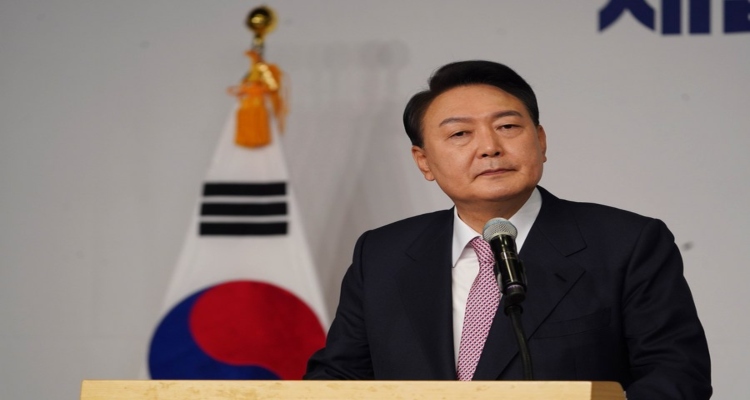
The legal trajectory surrounding former South Korean President Yoon Suk Yeol has intensified, as the Seoul judiciary approved a detention warrant linked to his impeachment over attempts to impose martial law.
This development marks a historic moment as it is the first instance of a sitting South Korean president facing arrest.
The Seoul Western District Court sanctioned the Corruption Investigation Office for High-ranking Officials (CIO) to issue the detention warrant, amplifying the judicial scrutiny on Yoon. His impeachment by the National Assembly on December 3 was triggered by efforts to enforce martial law, a move that ignited widespread political and societal opposition.
Additionally, the court authorized a search of Yoon’s presidential residence in Yongsan, Seoul, highlighting the expansive scope of the investigation.
The detention warrant was issued following Yoon’s repeated disregard for three formal summonses to answer questions regarding the martial law attempt.
The CIO is expected to promptly execute the warrant. Upon detention, the agency will have 48 hours to decide whether to seek an arrest warrant for prolonged custody or to release Yoon. In South Korea, detention warrants are generally valid for 7 days.
In issuing the warrant, the court dismissed Yoon’s argument that the CIO lacked jurisdiction over insurrection cases, asserting the legitimacy of the warrant. The court also rejected Yoon’s claim that inadequate security arrangements prevented his attendance at questioning sessions.
The Presidential Security Service confirmed its intention to adhere to legal protocols following the warrant’s approval. Although Yoon, as a sitting president, was immune to most criminal prosecutions, South Korean law specifically excludes charges of insurrection or treason from such protections.
Case History
Earlier, on December 14, the National Assembly decisively impeached Yoon for his martial law attempts. The unicameral legislature’s vote concluded with 204 members in favor and 85 against, alongside three abstentions and eight invalid ballots. The secret ballot required a 2/3 majority, which was achieved with the participation of all 300 assembly members.
Following his impeachment, Yoon was immediately suspended from office. The unfolding legal proceedings emphasize the significant ramifications of this case, setting a crucial precedent for the accountability of executive authority in South Korea.




